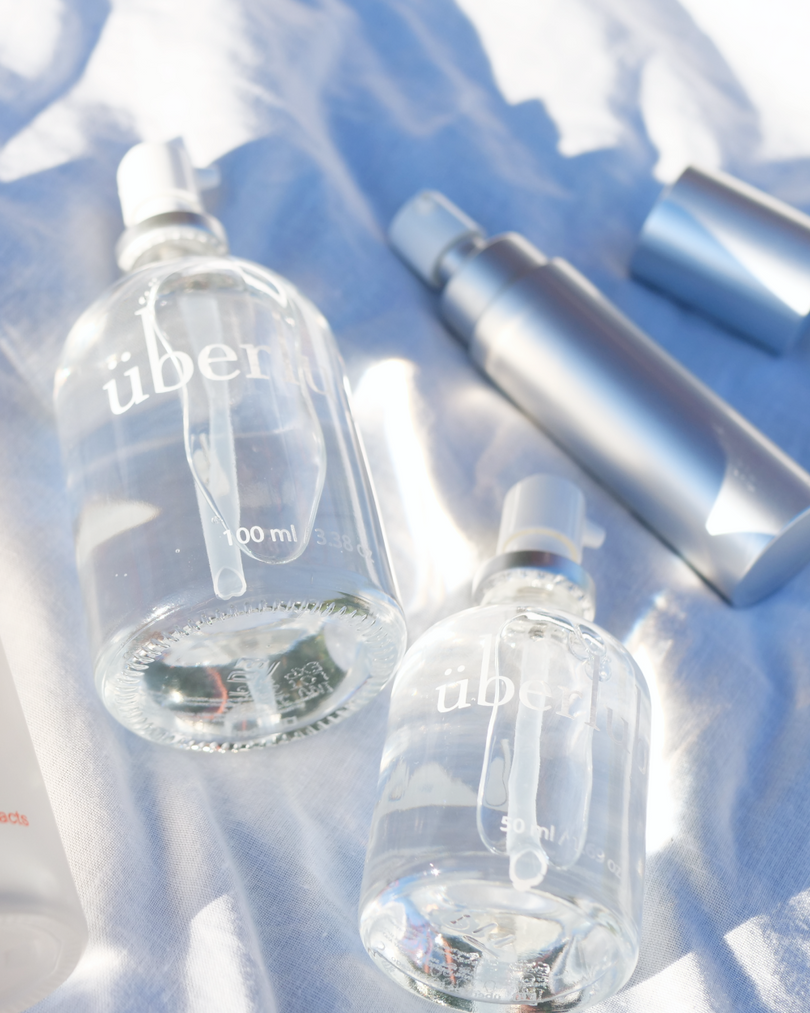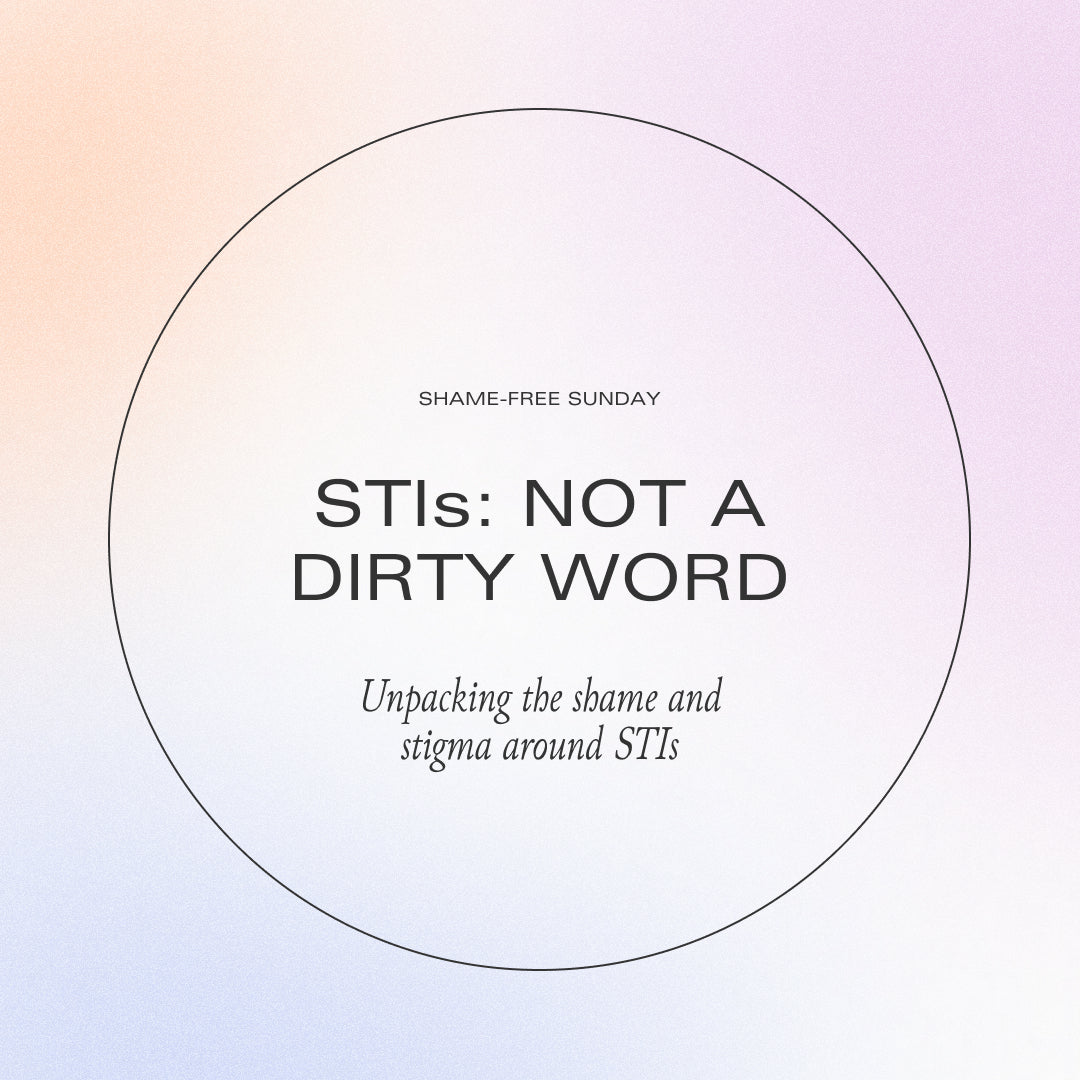This week, we had the pleasure of chatting with with Eleni Gabrielides – an Australian sexual health promoter and sexology student – about all things related to bacterial vaginosis. Eleni loves talking all things sex, bodies, relationships and everything in between with plenty of curiosity. She spends her days smashing taboos with enthusiasm and a smile. Read on as she helps us smash stigmas around BV!
flossy: What is bacterial vaginosis?
Eleni: Vaginas are full of good bacteria and microorganisms. This is called the vaginal microbiome, which is at its most ‘healthy’ state when lactobacillus is the dominant bacteria. Sometimes, this balance can be disrupted and the dominant bacteria changes, which can cause
bacterial vaginosis (BV).
How BV is spread
Although research still isn’t conclusive on how it's spread, there are a few things we
do know:
- It’s more common in people who are having sex
- It commonly pops up after sex with someone new
- It can be transmitted from vagina -> vagina
- Some evidence suggests using condoms reduces your risk (which makes sense re: less things (i.e. sperm) to throw off your microbiome.
- It’s more likely to occur if there is another STI around
- About ⅓ of people who get BV will experience it again
Symptoms of BV
- ‘Fishy’ smelling discharge
- White-grey, thin discharge. Note: it's important to understand your usual discharge throughout your ovulatory and menstrual cycle so you can spot when something is up. More on this later!
- Vulval irritation
Diagnosis for BV
- A doctor/nurse will get a swab from the vagina. This might be self collected (you do it yourself in privacy) or it might be a ‘high vaginal swab’ which is kinda like a cervical screen - they do that for you.
- They will test the swab for a few different things, all relating to BV and let you know what’s going on.
Treatment for BV
- Antibiotics (reminder to take probiotics with antibiotics if you know that antibiotics play a bit of havoc on your vag).
- Always finish any course of antibiotics your prescribed (unless advised otherwise).
A few other things to note about BV
- BV is not currently classified as an STI, although it can be acquired from sex (but it can also happen spontaneously)
- It is the most common cause of abnormal vaginal discharge in people with vaginas in reproductive age.
- Up to 50% of people don’t get symptoms
flossy: How does bacterial vaginosis impact sexual wellness?
Eleni: Vaginas and vulvas are already shrouded in gross, smelly, stigma. Having BV which be smelly and can bring on unusual discharge, can really play on how we feel about our own body, particularly if we’ve got some internalised stigma going on - which a lot of us do. Big reminder: BV is super common, and our vaginal microbiome being a bit out of sorts sometimes is NORMAL! The microbiome makes it sensitive down there. Give yourself the time and space to mend before getting sexy again - and avoid toys while you’re on the mend too. We don’t want any reinfections happening later down the line.
flossy: What are common misconceptions about BV?
Eleni: OMG DOUCHING. Everyone needs to stop douching. It’s unnecessary, and can actually make things a whole lot worse (like giving you BV). I know going for nice smelling soaps might seem like the solution to a fishy-smelling vagina, but you’ve been lied to. The vagina (inside) doesn’t need cleaning, it cleans itself! You can wash the vulva (the outside) with water and mild soap, that’s it. Sprays, wipes, and other ‘feminine hygiene' products are most often a waste of money, time, and can sometimes do more harm than good. Unless advised by a doctor or medical professional, save your money and save your vag. BV doesn’t make you or your vagina gross, toxic or ‘bad’. If anyone tries to tell you otherwise, put them in the bin.
flossy: How can people navigate BV sans shame?
Eleni: Bringing it back to what I said in navigating sexual wellness, really. Always keep in mind that your vagina is a) self-cleaning and b) a wonderful microbiome that protects you from other infections. Our bodies are amazing, and it’s important to be familiar with them so we can spot when something is off (like BV). Getting BV can be annoying, but it’s also a reminder to take the time to mend and be kind to yourself. Take yourself to get checked (at a doctor, medical centre or sexual health clinic) if you notice any changes that are out of the ordinary.
flossy: What else would you want people to know about BV?
Eleni: That a microbiome being disrupted is very normal, the vagina is self-cleaning and look at what’s going near your vagina, this includes:
- Bath and shower products
- Lubes and condoms
- Creams and oils
- Your sex toys (what are they made from? How often do you clean them? What do you clean them with? How do you store them). More on this later as well!
- How often you change to fresh underwear
- What you wash your undies with
- If applicable - period products (Are they scented? Do you change them at the right time? Do you wash them and store them correctly if they’re reusable?)
For any questions or thoughts about BV, connect with us today 〰️ hello@feelflossy.com.



